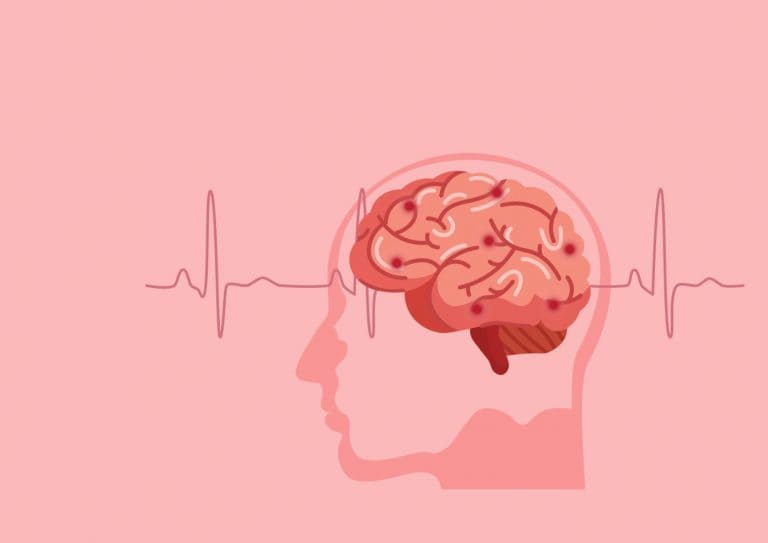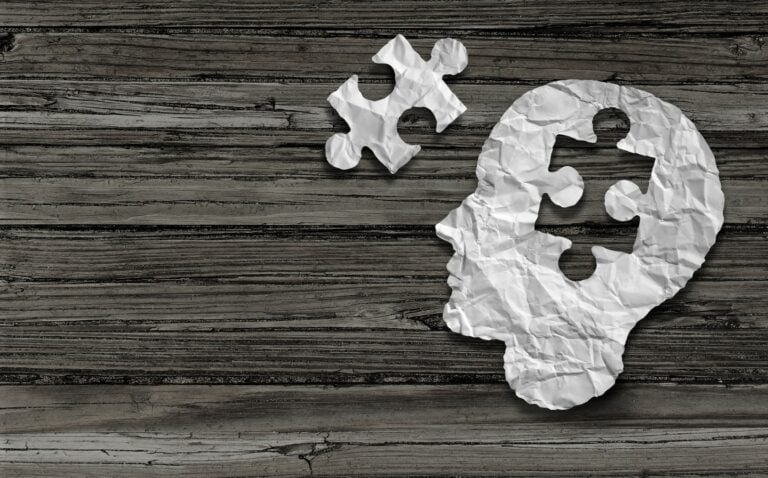As well as working towards getting compensation for your child’s injuries and losses, we aim to do all we can to help relieve the stresses and challenges that occur after your child has suffered a brain injury. Our long term goal is to ensure that your child’s and family’s futures are as bright as they can be.
This process is called Rehabilitation. Take a look at how it works and how we can help.
What is rehabilitation?
Rehabilitation for your child following his or her brain injury is, essentially the act of restoring him or her through equipment, physical therapy, nursing care, accommodation adjustments or psychological care, as far as possible to good health and a normal life and, if this is not possible, giving him or her the best possible health and life, given the injuries.
It is a process of assessment, treatment and management by which your child is supported to achieve his or her maximum potential for physical, cognitive, social and psychological function, participation in society and quality of living. It is usually provided through an interdisciplinary team of health and allied professionals and often consists of two phases: inpatient rehabilitation and community rehabilitation.
The needs of your child and family are unique and change over time; there is no “one size fits all” solution to the challenges facing you. Rehabilitation should reflect your child’s changing needs.
Many of your child’s needs can be met by practical support found through NHS and local authority universal community services, such as your child’s GP or school. The process of planning rehabilitation should be undertaken in conjunction with treating doctors and other professionals involved with your child but will not be limited to the services that the state can provide. Public resources are limited, waiting lists are long and bureaucracy is difficult to navigate.
But the one thing that all children with a brain injury have in common is that there is no time to lose. The sooner practical support is in place the better – not only to make matters easier on a day to day basis but also to achieve the best possible long term outcome. Rehabilitation can be put in place even before the insurer has admitted liability and there are time limits for requesting and responding to rehabilitation requests.
How can we help?
We will consider as a priority whether your child has reasonable urgent and immediate needs that could be met by medical treatment or other rehabilitative measures. We do this right from the outset.
We will also consider, throughout the life of the case, whether your child has ongoing rehabilitation needs that are not being addressed, and should be. This is an ongoing process.
Immediate needs
We will:
- ask you if you need
- aids, equipment, adaptations or adjustments to the home or school environment; and/or
- to alleviate any problems related to your child’s injuries;
- tell the Defendant, as soon as practicable, what these needs are. We will describe the nature and extent of any likely continuing disability, its impact on you and your child’s life and any suggestions that may have already been made for rehabilitation and/or early intervention;
- invite the Defendant to work collaboratively with us to put that treatment/rehabilitation in place;
- invite the Defendant to fund an Immediate Needs Assessment and respond to us within 21 days.
Depending on the Defendant’s response, we will arrange for an Immediate Needs Assessment (INA) by an appropriately qualified rehabilitation professional. The assessment will take into account:
- the ages of your child and your family
- any pre-existing physical and psycho-social conditions
- return to education (for the child) or work (for the parent) issues
- other dependants living at home
- geographical location
- mental capacity
- activities of daily living in the short-term and long-term
- realistic goals, aspirations, attainments
- those who witnessed major trauma within the same incident
- the length of time since the injuries were sustained.
The immediate needs assessor will then prepare a report setting out recommendations for rehabilitation and we will then invite the Defendant to pay for the recommended intervention.
Ongoing process
We will, at the earliest opportunity, appoint a specialist paediatric brain injury case manager to work with you and your family to implement the recommendations in the INA and to keep them under review. A case manager is often the person who deals with everyone who is there to help you and your child throughout your child’s life. The case manager will help guide you through the different options available to you and follow through the choices you make. The case manager’s job is to assess, plan, implement, coordinate, monitor, evaluate the options and services required to meet your child’s health and wellbeing, education and occupational needs – the whole rehabilitation process in other words. The case manager will work with you, relieving you of the pressures – if you wish – of managing hospital appointments, community services, and private therapists, so that you can focus on your irreplaceable role as parent.
What sort of rehabilitation might be recommended?
In our extensive experience, the family stresses, educational, cognitive-communicative and behavioural challenges that occur after a child has a brain injury are complex and may need input from multiple sources, and these may change over time.
Clinical neuropsychology:
Neuropsychological tests are used to help identify cognitive deficits caused by a brain injury and neuropsychological therapy can then guide and inform the whole rehabilitation team involved with your child.
Occupational therapy:
Personality changes and behavioural problems are common following a brain injury. These symptoms can range from subtle to changes to dramatic transformations that have a significant impact on your child and family life. Occupational therapists analyse these changes and can help with appropriate coping strategies that are truly focused on your child, helping him or her to grow, learn, have fun, socialise and play so as to develop, thrive and reach his or her full potential. Occupational therapy enables your child to participate in the many activities (or occupations) of daily life such as getting ready to go out, eating a meal, using the toilet, being productive (going to nursery or school, or volunteering) and leisure – playing with friends or doing hobbies. The occupational therapist will identify any aids or equipment that will help.
Communication:
A brain injury can have a pervasive affect upon a wide range of abilities, including cognition, language and communication. Speech, language and communication therapy, including assistive technology may be needed to improve functional communication for your child, within the home and at school.
Family therapy:
The effects on you and your family of your child’s injury should not be underestimated. Good family relationships are key to successful rehabilitation. Family therapy can help to identify conflict and issues that may exist, how these can be avoided and how to deal with them when they do arise.
Paediatric neuro physiotherapy:
Children who have suffered a brain injury frequently have a variety of physical problems. These may be muscle stiffness or spasm (commonly called spasticity), weakness of muscle, tremor, problems with sensation etc. These symptoms can lead to problems with everyday activities such as walking, getting dressed and feeding and, if not addressed early, will only increase difficulties with movement later on. Paediatric neuro physiotherapists specialise in the assessment and treatment of physical problems in children who have neurological conditions. They may recommend equipment and implement treatments such as, exercise programmes (including riding and aquatics) and will take into account the role the family and carers play in ongoing physiotherapy.
Orthotics:
Orthotics such as splints and braces can help to restrict or assist movement, correct the shape and/or function of the body, provide easier movement capability or reduce pain. In our experience, orthotics paid for privately are of higher quality and produced more quickly than those provided by the NHS and your growing child cannot afford to wait.
Return to education:
If your child is starting or returning to school after a brain injury he or she will probably face many challenges. Your child may need extra support in school and the school itself may require guidance and training to understand your child’s needs. In some cases, it might be better for your child to go to a special school. The Immediate Needs Assessment and ongoing review will identify what educational support, such as a Teaching Assistant, extra time and specialist teachers, should be made available to enable your child to access education.
Help with housing:
In some cases, the severity of your child’s injury means that your home is no longer suitable. It may have to be adapted, to install for example a wet room, a therapy room, hoists, lifts or ramps. Sometimes it is not feasible to adapt your home and a new home must be found. An architect, property search agent, adaptations specialist can all help identify what is needed, estimate the costs and work involved, and appoint contractors to undertake the work.
Care:
Depending on the nature and severity of your child’s injury he or she may need 24 hour care from a team of carers to help with all aspects of daily living and nursing care. At the other end of the scale he or she may need a “buddy” to help remember ways to cope with some of the situations facing him or her. Or it may be that some respite care for you needs to be put in place.
Technology and Arts:
The use of technology in rehabilitation has advanced significantly in recent years. Assistive technologists will look at the newest and most innovative equipment used in rehabilitation to provide the best possible care and outcome for your child. Neurologic music therapy, art and drama therapy can transform the relationship your child has with their rehabilitation, and provide a clinical and cost effective approach to Multidisciplinary Team (MDT) working.
Welfare benefits advice and assistance:
Personal injury can have profound and often devastating effects not just on your injured child, but also your family, friends and work. Families often find themselves under financial pressure as they may have to reduce or cease employment to care for their child and may also have increased expenditure. Help with navigating the often complicated welfare benefits system and with the process of dealing with multiple benefits from several agencies can relieve the pressure on you.
Case study 1
R was a toddler when he was involved in a head-on collision in a road traffic accident. He suffered serious head injuries, for which he had to undergo surgery. He was discharged home a week later. Before the accident he was a happy little boy who was getting on well at nursery. After the accident he started to exhibit temper tantrums. These were initially thought to be part of a post-traumatic reaction rather than a consequence of the head injury but his behaviour remained challenging when he attempted to return to nursery including biting and scratching his mother and other children.
Our medical expert assessed him a few years after the accident as having high intellectual ability but severe working memory difficulties with an inability to retain, access and manipulate common sequences. He struggled with his peers, who described him as “weird”. He had few friends and very low self esteem. He had a tendency to rush his work and his ability to concentrate for long periods of time was limited as he allowed himself to get sidetracked and distracted.
Liability was admitted in full by the Defendant but R was too young for anyone to assess the long term consequences of his injuries. Our expert recommended that a specialist paediatric brain injury case manager be employed, that R attend a private school with small class sizes, have specialist individual learning support at school and at home, that the family have regular family therapy support in managing R’s increased irritability and oppositional behaviour. She also recommended annual review by a neuropsychologist and termly review by an educational psychologist.
The Defendant’s insurers agreed to make annual interim payments until R finished growing (mid to late teens) and the prognosis became clear. These annual interim payments have funded private school fees, a higher level Teaching Assistant, occupational therapy, educational psychology and neuropsychology input, family therapy and case management.
In his latest school report, at age 10, R is said to have made huge improvements over the last few years. His classroom etiquette has improved and he has strategies in place to help him plan and organise his day and his work. His confidence has soared. He has exceeded all expectations this year. He is popular, and is an active and willing participant in class. He is more focussed and absorbs feedback well. He will continue to need and receive tailored support, particularly as he transitions to secondary school and grows and develops through puberty.
Who pays for rehabilitation?
Funding for your child’s rehabilitation can come from the NHS, private health insurance or local authorities but there may be limits what how much is available through these routes.
This is why we will always communicate with the Defendant’s insurer about your child’s rehabilitation needs as a priority. We will arrange for your child’s and family’s needs to be assessed by a rehabilitation professional and costed in the Immediate Needs Assessment report. We will invite the Defendant to pay for the INA and report. The Defendant’s insurer is then required to consider whether to pay to implement the recommendations in the report.
If the Defendant’s insurer agrees to pay for the recommendations, under the terms of the 2015 Rehabilitation Code they cannot later contest the cost and, once funding is in place, treatment and rehabilitation can start immediately.
If the Defendant’s insurer refuses to pay or offers to pay but with unacceptable strings attached or an insufficient amount, or later withdraws an offer to pay, we will advise you on the options open to you while we press ahead with traditional court procedures. If the cost of providing rehabilitation is reasonable, then it should form part of the compensation award and will be recoverable. The court may order the Defendant to make interim payments along the way, as long as the cost is established as being reasonable.
Case study 2
G was diagnosed with spastic quadriplegia due to a severely reduced supply of oxygen and blood to the brain. This resulted in marked developmental delay, with physical, cognitive impairment and cerebral visual impairment. G’s parents and siblings spoke no English and “home” was a rented split-level top floor flat with no lift access. They had no other family in the UK and social services were not involved with the family.
When we were first instructed, G’s parents were providing G with all his care. They had to carry him up and down four flights of stairs to access or leave the flat. G had poorly controlled epilepsy and his parents were reluctant to leave the property for fear of G having a seizure when being carried down the steps. G and his mother slept on the floor in the living room, as he was unable to access the upper levels of flat , and had no access to bathing facilities downstairs. He rarely attended school due to his epilepsy and difficulties leaving the flat.
We secured an early admission of liability and the Defendant agreed to pay for an Immediate Needs Assessment. This identified that G urgently needed: a 4 to 5 bedroomed home on one level with access to a garden and a wet room; 24 hour 2:1 care from highly skilled carers with brain injury and physical disability experience, ideally with the ability to communicate in the family’s native language; extensive equipment including a mobile hoist, wheelchair, shower chair, riser-recliner armchair, hospital bed and pressure mattress, incontinence pads, bibs; occupational therapy to assess and advise on manual handling and postural management; neuro-physiotherapy to assess his physical status and address physical needs in order to prevent further deformities; neuro-speech and language to establish the full extent of his comprehension and expression skills, risks of aspiration and therapy needs; dietetic input; family therapy and an adapted wheelchair-accessible car.
We obtained substantial interim payments from the Defendant and within 6 months, with the help of a specialist paediatric brain injury case manager who could communicate with the family in their native language, G and his family had moved into a 4 bedroomed house, adapted to include a wetroom, with a 24 hour care package, and a therapy package including occupational therapy, neurophysiotherapy, speech and language therapy and family therapy. All G’s equipment needs were met and the dietician started him on a Ketogenic Diet, which drastically reduced the frequency of his seizures. G started at a special school and a comprehensive Education, Health and Care plan was formulated with help from our SEN team.
If you have any questions arising out of this page or if you would like copies of any of the publications mentioned, please contact jochapman@boltburdonkemp.co.uk















